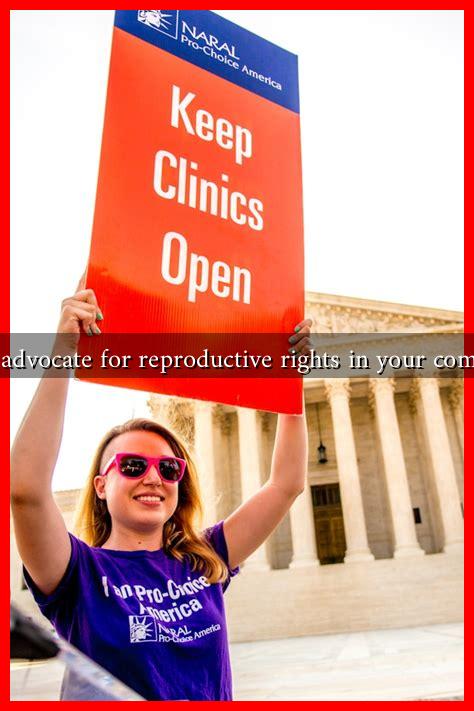-
Table of Contents
How to Advocate for Reproductive Rights in Your Community
Reproductive rights are fundamental human rights that encompass a range of issues, including access to contraception, safe and legal abortion, and comprehensive sex education. Advocating for these rights in your community is crucial, especially in light of recent legislative changes and societal shifts. This article will explore effective strategies for advocating for reproductive rights, supported by relevant examples and statistics.
Understanding the Landscape of Reproductive Rights
Before you can effectively advocate for reproductive rights, it’s essential to understand the current landscape. In many regions, access to reproductive health services is under threat due to restrictive laws and policies. According to the Guttmacher Institute, as of 2021, 26 states in the U.S. had laws that could significantly restrict access to abortion if Roe v. Wade were overturned. This highlights the urgent need for advocacy at the community level.
Strategies for Advocacy
Advocating for reproductive rights can take many forms. Here are some effective strategies to consider:
- Educate Yourself and Others: Knowledge is power. Familiarize yourself with local laws, statistics, and the implications of reproductive rights. Share this information through workshops, social media, and community events.
- Engage with Local Organizations: Partner with local reproductive health organizations, such as Planned Parenthood or the National Abortion Federation. These organizations often have resources and programs that can amplify your efforts.
- Mobilize Your Community: Organize community meetings to discuss reproductive rights. Use these gatherings to build a coalition of supporters who can work together on advocacy initiatives.
- Utilize Social Media: Platforms like Twitter, Instagram, and Facebook can be powerful tools for raising awareness. Share informative content, personal stories, and calls to action to engage a broader audience.
- Contact Your Representatives: Write letters, make phone calls, or schedule meetings with local lawmakers to express your views on reproductive rights. Personal stories can be particularly impactful in these discussions.
- Participate in Protests and Rallies: Join or organize local protests to raise awareness about reproductive rights. These events can draw media attention and mobilize community support.
Case Studies: Successful Advocacy Efforts
Several communities have successfully advocated for reproductive rights, serving as models for others. For instance:
- Texas Abortion Funds: In Texas, grassroots organizations like the Texas Equal Access Fund have mobilized community support to provide financial assistance for those seeking abortions. Their efforts have highlighted the importance of local support networks.
- New York’s Comprehensive Sex Education: In New York City, advocates successfully pushed for comprehensive sex education in public schools, ensuring that students receive accurate information about reproductive health. This initiative has empowered young people to make informed decisions.
Statistics That Matter
Understanding the statistics surrounding reproductive rights can bolster your advocacy efforts. Here are some key figures:
- According to the World Health Organization, approximately 25 million unsafe abortions occur each year, highlighting the need for safe and legal access to abortion services.
- The Centers for Disease Control and Prevention (CDC) reports that nearly half of all pregnancies in the U.S. are unintended, underscoring the importance of accessible contraception and education.
Conclusion: The Power of Local Advocacy
Advocating for reproductive rights in your community is not just a political act; it is a moral imperative that can lead to significant change. By educating yourself and others, engaging with local organizations, and mobilizing your community, you can make a meaningful impact. Remember, every voice matters, and collective action can lead to transformative outcomes. For more information on reproductive rights and advocacy, consider visiting Planned Parenthood or Guttmacher Institute.
In summary, the fight for reproductive rights is ongoing, and your involvement can help shape a future where everyone has access to the healthcare they need. Start today, and be the change you wish to see in your community.

